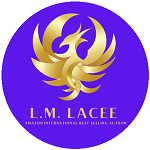
Do You Need A To Read Book Reviews To Decide To Read A Book?
It is well known reading a book is a deeply personal experience that cannot be fully captured by any review. Either positive or negative. While book reviews can provide some insight into a book’s content and style, they cannot convey the full emotional impact and intellectual stimulation that a book can provide. Never mind the message the author may be trying to convey to her audience. Therefore, it’s far more important to actually read than to rely on reviews to decide whether to read it.
The book publishing industry in general regard reviews as a crucial aspect of their industry. Furthermore, they assume they help potential readers decide whether to purchase it or not. While reviews can be positive, negative, or somewhere in between, and they can influence how well a book sells, it does not necessary reflect whether the book is actually worth reading. In general it may be assumed, positive book reviews are preferred over negative ones. Also there are many reasons for this, especially by the authors.
Three Reasons

Firstly, positive book reviews are more likely to attract readers than negative ones. People are more likely to be interested in a book if it is praised in a review. Reason being, they assume that the book is of high quality and worth reading. Positive reviews can also help create buzz around a book. And readers may share the review on social media or recommend it to their friends.
Secondly, positive book reviews can help boost an author’s career. Publishers and agents often pay attention to reviews when deciding whether to work with an author. Their time is at high demand, thus positive reviews can increase an author’s chances of getting a book deal or securing an agent. Positive reviews can also help an author build a fan base. Readers who enjoy these are more likely to seek out the author’s other works.
Thirdly, positive book reviews can have a positive impact on an author’s mental health. Writing a book can be a long and arduous process. Therefore, receiving positive feedback can be a much-needed boost to an author’s confidence. Negative responses, on the other hand, can be demoralizing and discouraging, especially if the author has put a lot of time and effort into the book.
Books Are Deeply Personal
It is well known reading a book is a deeply personal experience that cannot be fully captured by any review. Either positive or negative. While book reviews can provide some insight into a book’s content and style, they cannot convey the full emotional impact and intellectual stimulation that a book can provide. Never mind the message the author may be trying to convey to her audience. Therefore, it’s far more important to actually read it than to rely on reviews to decide whether to read it.
The publishing industry in general regard reviews as a crucial aspect of their industry. They assume they help potential readers decide whether to purchase a book or not. While reviews can be positive, negative, or somewhere in between, and they can influence how well a product sells, it does not necessary reflect whether it is actually worth reading. In general it may be assumed, positive book reviews are preferred over negative ones. There are many reasons for this, especially relevant to the authors.
This must be known About Book Reviews
Book reviews, like any other form of art criticism, are inherently subjective. This means that they are based on personal opinions, preferences, and biases, and are not necessarily representative of objective reality. What one reader may love about a book, another may hate, and vice versa. Therefore, it’s important to take reviews with a grain of salt and use them as a tool to help guide your reading choices, rather than rely on them as an objective measure of a book’s worth.
One reason why book reviews are subjective is that different people have different tastes and preferences when it comes to reading. Some readers may prefer fast-paced action-packed novels, while others may prefer slow-burning character-driven stories. Some readers may be drawn to books with complex philosophical themes, while others may prefer light-hearted romances. The same book can elicit different reactions from different readers, depending on their individual tastes and experiences.

Another reason why book reviews are subjective is that reviewers bring their own biases and preconceptions to the table. Reviewers may have personal connections to the author or the subject matter of the book. Just this alone can color their perception of the book. They may also have political or ideological beliefs that influence their interpretation of the book’s themes and messages. Additionally, reviewers may have expectations based on the author’s previous works or the book’s genre, which can affect how they evaluate the book.
Why are Book reviews Subjective?
Furthermore, book reviews are subjective because they are often influenced by the reviewer’s emotional and psychological state at the time of reading. A reviewer who is going through a difficult time in their life may be more drawn to books with themes of loss and grief, while a reviewer who is feeling happy and content may prefer books with uplifting and optimistic themes. Reviewers may also be influenced by their environment, such as the time of day, the weather, or the location in which they are reading the book.
In conclusion, book reviews are subjective and should be taken as such. While they can be a useful tool for helping readers decide whether to read a book, they should not be relied upon as an objective measure of a book’s quality or worth. Different readers will have different reactions to the same book, and it’s important to respect and acknowledge these differences. Ultimately, the value of a book lies in the eye of the beholder, and no amount of book reviews or criticism can change that.

